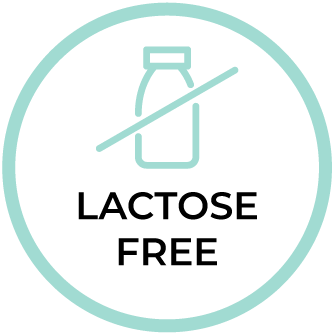- Home
- Vitamina C Retard 500
Vitamina C Retard 500
40 CapletsSlow-release tablets of Vitamin C, to make absorption more effective
- Normal function of the immune system
- Protection of cells against oxidative stress
- Slow-release coated tablets


Vitamina C Retard 500 is a high-dose vitamin C food supplement, in slow-release coated tablets. Vitamin C contributes to the normal function of the immune system* and to the protection of cells from oxidative stress**.
Vitamina C Retard is a high-dose vitamin C dietary supplement, in slow-release coated tablets. Vitamin C contributes to the immune system's normal functioning and protects cells from oxidative stress.
With the approaching winter, everyone hurries to find prevention remedies for colds, seasonal illnesses, or flu types. As a first choice, vitamin C is usually the most popular prevention "remedy". But it would be reductive to just define it as a supplement able to fight these disorders. Vitamin C is a true "multitask force" which takes part in many metabolic processes, as well as playing an important role in strengthening the immune system.
Vitamin C, also called ascorbic acid, is a water-soluble vitamin, just like vitamin B and folic acid. This means that it can be stored in the body only in limited quantities and must be ingested daily, during meals, so a continuous supply is necessary, since the human body is not able to synthesise it.
Fresh vegetables and citrus fruits contain large quantities of Vitamin C. Among the foods that contain the most quantity, are: kiwis, which provide 93 milligrams of vitamin every 100 grams; the papaya (which guarantees 60 milligrams); oranges (with 59 milligrams!); strawberries (58 milligrams); lemons (53 milligrams); and pineapple (47.8 milligrams), just to mention a few famous representatives containing it.
Unfortunately, with the modern era we must very often think about whether it is necessary to integrate vitamin C, especially in certain periods or situations of increased need. It is necessary to underline, that nowadays our diet is poor of "genuine" fresh fruit and vegetables: the food supply chain is long, so the foods reaching our tables often seem to be fresh, whilst they have actually been stored for days through special treatments. It is important to know that a large quantity of vitamin C is lost during the time passing between harvesting and consumption. Its conservation greatly reduces its content too, in fact the fresher and less cooked the foods, the greater the quantity of vitamin contained. It is an extremely short-lived vitamin, and being very soluble in water, it rapidly oxidises, in an aqueous solution, in the presence of metals, alkalies, light, oxygen, and obviously cooking in water drastically alters its presence in food. In addition to their preservation, the chemical treatments received by the various foods reaching our tables, have a negative affect, depleting the content of precious nutritive microelements; so even a lot of the fruit and vegetables that we eat, contain a minimum, or zero, quantity of vitamin C. It is undeniable therefore that often, diet alone cannot guarantee a daily requirement intake, especially during certain periods. Besides the poor diet of fruit and vegetables, there are also several other factors contributing to this vitamin's shortage, they relate mainly to lifestyle: smoking, pollution, stress, cold, mineral imbalances such as copper and iron, but also certain therapies that can lead the body to not have enough vitamin C. The common opinion of being such an important vitamin is more than deserved, this vitamin is fundamental and carries out many important functions in the body. We think it was first studied in 1747, when researchers discovered that vitamin C helped to protect malnourished sailors from scurvy (vitamin C deficiency disease). With the pursuit of this research, its field of use and confirmations in medical-scientific matters, have continued to spread enormously.
None of the other vitamins has the power to intervene on so many functions, like vitamin C does. Its antioxidant action is particularly important, in fact it also protects the body from free radicals. The excess of free radicals can cause the so-called oxidative stress that is connected or related to the onset of various diseases, and to the accelerating of the ageing process.
All the effects of vitamin C are truly manifold: it strengthens the function of phagocytes, increases the production of antibodies, stimulates the synthesis of interferon, the biosynthesis of carnitine, has an anti-cholesterol action, as well as, like previously said, to destroy the oxygenated free radicals, the hydroxyl radical, the superoxide radical, the oxygen radical, it participates in the processes of cellular respiration, and intervenes in the development of the fibroplasts. A very important function and increasingly in the limelight for various joint problems or for aesthetic medicine, it intervenes in the synthesis of collagen, a protein necessary for the formation of the connective tissue of the skin, ligaments and bones. The lubricating fluid of the joints, called the synovial fluid, becomes more fluid when the serum levels of ascorbic acid are consistent, favouring a better range of motion.
Vitamin C plays an important role in the healing of wounds and burns, because it facilitates the formation of the scar connective tissue. It supports moments of stress as it also intervenes in the formation of adrenal hormones. It is also well known for facilitating iron absorption. Its role as "protective" vitamin concerns not only its action against free radicals, but also counteracts the toxic effects of nicotine, benzoate, nitrogen compounds, cytotoxic, ionizing radiation.
Under conditions of "stress", our body consumes it even more quickly. It is also necessary to talk about its problems of "absorption", often very little known or kept in poor consideration by the "ruthless" marketing world of many companies. The level of ascorbic acid in the blood reaches the maximum tip two or three hours after ingestion, and then decreases when the elimination begins through urine and sweating. Most of the vitamin C is removed from the body in a few hours, which is why it should be taken several times a day. But beware, a greater elimination of vitamin C through the urinary tract, due to a higher intake of the vitamin, does not mean that the body's tissues are saturated. The fact is that the human body needs it increasingly over the years.
When taken orally, most of the vitamin is absorbed through the mucous membrane of the mouth, stomach and upper part of the small intestine. The higher the dose, the lower the absorbed percentage will be. It seems apparently strange, right? In a dose of less than 250 mg, the vitamin percentage can be absorbed almost completely (we are talking about eighty percent); whilst in a dose of more than two grams, only the 50% will be absorbed. Since, during a certain period of time, a healthy body can only absorb a certain amount, a high dose intake of vitamin C at once, if not necessary, causes a greater elimination of non-metabolised ascorbic acid (NB In therapeutic treatments Intravenous injections of a few grams of ascorbic acid are much more effective than oral intake of the same amount, but this is a separate matter). So it is almost useless to "abound" on oral megadoses of vitamin C in a single intake that would only serve to "enrich" the content of the urine of Vitamin C, or cause potential overdose problems. A poor-absorption due to an overdose of vitamin C, may lead to gastrointestinal problems, such as diarrhoea, or even heartburn or reflux. In regard to kidneys, especially in people with a predisposition, an excess that could come from plasma ascorbic acid can also lead to the formation of kidney stones. This is caused by an increased production levels of oxalic acid (during the phases of vitamin C catabolism) and therefore of oxalates.
To overcome these reasons of potential poor yield of vitamin C supplements, the new Vitamina C Retard, that we wanted to include in the Yamamoto® Research catalogue, turns out to be a very convenient and effective solution. This is because thanks to its formulation in "retard" tablets ", it will make the absorption of vitamin C in the intestine more effective, allowing a gradual release of the content and a more durable bio-availability of this precious vitamin for its various defensive, protective," anti-ageing ", and other functions. This will also prevent poor-absorption of the active substance, or of raising excessively the levels of ascorbic acid in the blood, thus avoiding the risk of expelling excessive amounts of vitamin C through the urine.
| Nutrition information | Per daily dose (2 tablets) |
| Vitamin C | 1000 mg (1250% RI*) |
| *RI = Reference Intake | |


L-ascorbic acid (vitamin C), bulking agent: microcrystalline cellulose; stabiliser: hydroxy-propyl methylcellulose; coating (glazing agents: shellac, hydroxy-propyl methylcellulose, talc, polyethylene glycol; colouring agents: titanium dioxide, iron oxides and hydroxides), anti-caking agents: magnesium salts of fatty acids, silicon dioxide.


